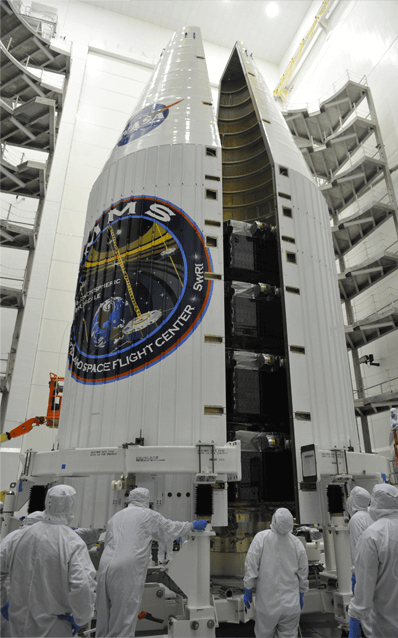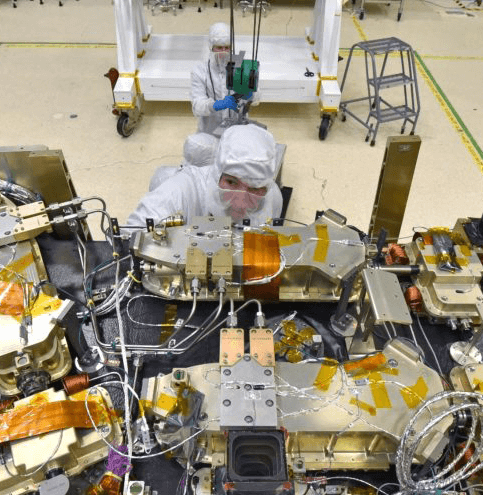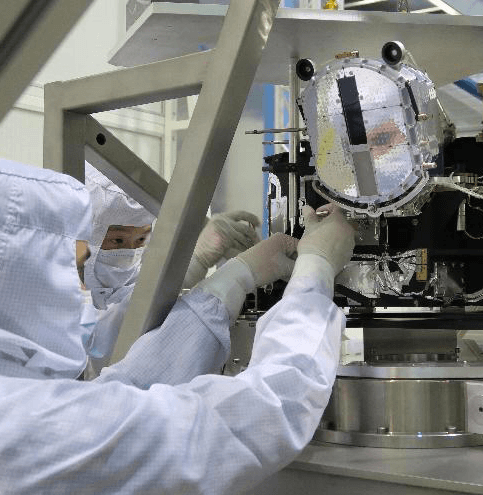Aerospace Thermal Engineering
Design | Analysis | Integration | Test Support
Vertex Aerospace, LLC is an engineering services company headquartered in Maryland, specializing in thermal engineering design, analysis and test support for government and industry throughout the United States.
Vertex Aerospace specializes in the design, analysis, integration, test and verification of thermal control systems (TCS). The thermal engineers at Vertex Aerospace have more than 30 years thermal engineering experience supporting NASA, DoD and industry. The Vertex Aerospace thermal engineers have extensive knowledge and experience in building geometric math models (GMM) and analytical thermal math models (TMM) with several of the industry standard thermal analysis tools including Thermal Desktop®, TRASYS, TSS, SINDA/FLUINT, SINDA/G, AutoCAD CFD Simulation and others.


DESIGN
Vertex Aerospace thermal engineers have experience and proven leadership as Product Design Lead (PDL), Integrated Product Team (IPT) and general thermal engineering design support for several NASA and DoD programs that includes defining, documenting and managing lower level thermal requirements, defining TCS hardware specifications, introducing design concepts and thermal control options, negotiating interfaces between subsystems and maintaining detailed subsystem cost and schedules. Vertex Aerospace thermal engineers have prevalent experience in developing detailed analysis reports and presenting spacecraft vehicle, instrument and component thermal control system (TCS) at Peer and System design reviews. Leveraging experience from supporting NASA, DoD and commercial space missions the Vertex Aerospace thermal engineers write the hardware specifications and procurement details, create and review component, instrument and observatory thermal interface control drawings and documents (TICD), lead the satellite (spacecraft + instruments + components) TCS integration effort and publish the thermal model correlation reports and final TCS flight analysis reports.

INTEGRATION
The Vertex Aerospace thermal engineers have extensive experience in the integration of the thermal control system (TCS) for spacecraft, instruments and components. This capability was highlighted during the MMS program which consisted of four identically built spacecraft, each containing 27 instruments with unique TCS designs. The Vertex Aerospace thermal engineering team was chosen by NASA early in the MMS conceptual design phase and has succeeded in accomplishing all the major program milestones that include the Systems Requirements Review (SRR), Preliminary Design Review (PDR), Critical Design Review (CDR), Pre-Environmental Review (PER), Thermal Model Correlation Review, and the Pre-Ship Review (PSR). Thru these milestones, the Vertex Aerospace engineers have gained valuable experience in thermal hardware integration for spacecraft, instruments, electronic PCBs, propulsion systems, and a variety of spacecraft components. The Vertex Aerospace thermal engineers have the knowledge and experience to satisfy the thermal hardware procurements, receiving and inspection, as well as, developing the integration procedures and orchestrating the integration of the thermal control hardware. In addition, the Vertex Aerospace thermal engineers support final integration and closeouts at the launch site and/or customer site.
TEST SUPPORT
Vertex Aerospace thermal engineers have expertise and extensive knowledge in testing, active or hybrid thermal control systems (TCS) for satellites, instruments and spacecraft components. All of these typically have a wide range of thermal requirements and interfaces to control that are verified by analysis and testing. Vertex Aerospace has worked closely with the test support groups at NASA, government and industry to identify the GSE requirements for several Thermal Balance (TB) and Thermal Vacuum (TV) tests. The Vertex Aerospace thermal engineers are the principal authors of the several TV/TB test plans and procedures to verify proper workmanship through TV cycling testing. Vertex Aerospace has proven experience in developing test procedures in accordance with MIL-STD-1540, MIL-HDBK-340 and the NASA GSFC-STD-7000. A thermal model of the test articles in their respective test configuration is used to make pre-test temperature predictions and verify the accuracy of the computed test sink temperatures and heat flows. Once these temperature levels are established, the Vertex Aerospace thermal engineers work closely with the technicians to confirm that the ground support equipment (GSE) is designed and configurations are set to ensure that the test plan is within the capabilities of the test facility.

